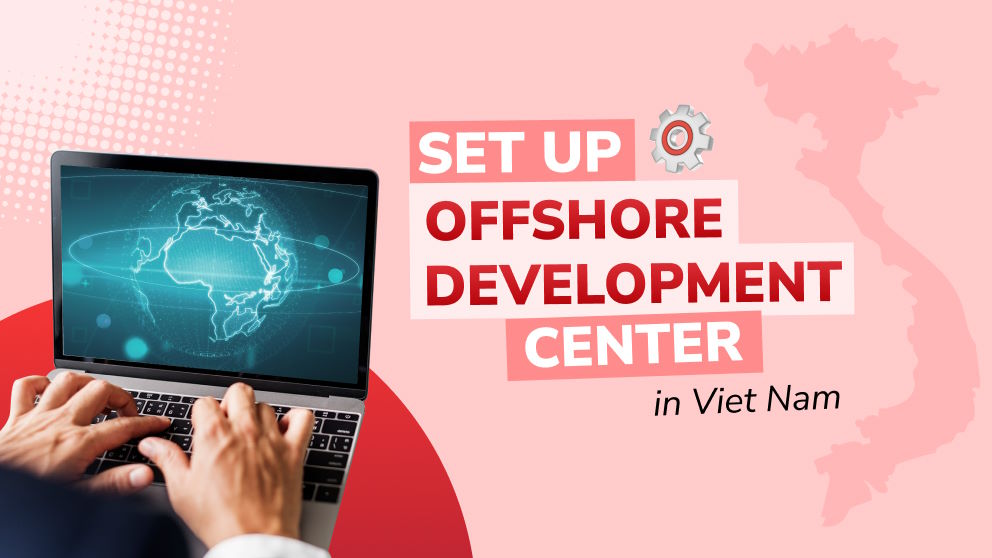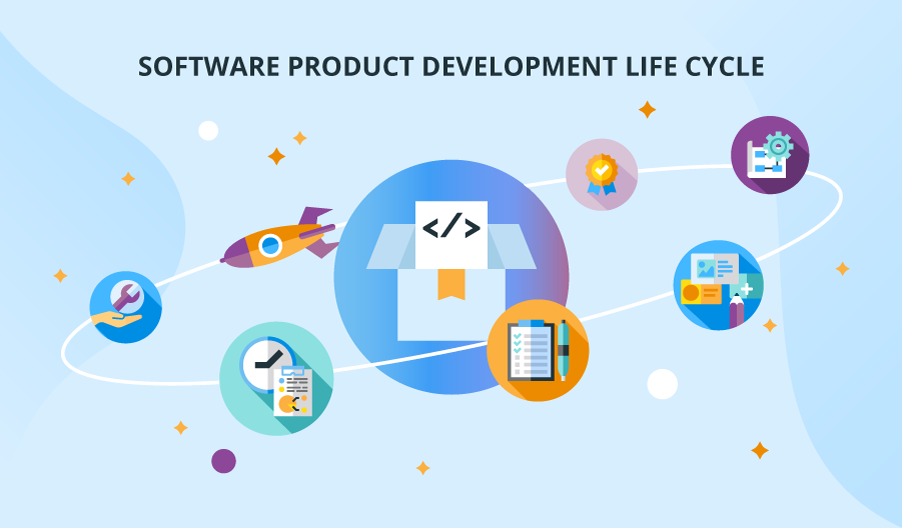If you’re looking to venture into the realm of offshore work within the field of Information Technology (IT), this guide is your key. Discover the essential steps, skills, and strategies needed to embark on a successful career as an offshore IT professional. From understanding the prerequisites to thriving in a diverse, remote environment, this article Offshoreteam.io provides a comprehensive roadmap for those aspiring to excel in IT while working offshore.
What is a working offshore?
An offshore worker is an individual who works in the IT industry, but not within the traditional office setting. Instead, they work remotely from a different location, usually outside their home country. Companies commonly hire offshore workers to help with projects or tasks that require specialized skills and can be completed virtually.

How to become a working offshore in IT?
Gain Technical Skills
To become an offshore worker in IT, you need to have strong technical skills in your chosen field. This includes knowledge of programming languages, database management, web development, and other relevant technologies. You can gain these skills through formal education, online courses, or self-study.
Build Your Portfolio
Having a strong portfolio is essential for getting hired as an offshore worker. This will showcase your skills and experience to potential employers. Be sure to include projects you have completed, programming languages you are proficient in, and any certifications or awards you have received.
Develop Communication Skills
Since offshore workers work remotely, communication skills are crucial for success. You must be able to effectively communicate with your team and clients, even if you are not physically present. This includes written communication through emails or project management tools and verbal communication through video or phone calls.
Network
Networking is vital in any industry, including the IT industry. Attend conferences, webinars, and other industry events to meet and connect with professionals in the field. This can help you learn about job opportunities, gain insights and advice from experienced offshore workers, and expand your professional network.
Consider Contract Work
Many offshore workers start off as freelance or contract workers before securing a full-time position. This allows them to gain experience and build their portfolio while also having more flexibility in their work. Consider taking on contract work to gain experience and build your reputation before seeking a full-time offshore job.
Readmore: Benefits Offshore Software Development
Offshore career options
There are many different offshore career options in the IT industry. Some of the most common roles include software developer, web developer, data analyst, and project manager. However, there are also opportunities for IT support specialists, network engineers, and cybersecurity experts.
It is important to research and understand each role to determine which aligns with your skills and interests. From there, you can focus on developing the necessary skills and gaining experience in your chosen field to pursue an offshore career. Additionally, keep in mind that many offshore workers have diverse skill sets and may take on multiple roles within a project or company.

Advantages of an offshore career
There are several advantages to pursuing an offshore career in the IT industry. These include:
- Higher pay: Offshore workers often earn higher salaries compared to their onshore counterparts due to the specialized skills and experience required for these positions.
- Global opportunities: Working offshore allows you to work with clients and companies from all around the world, providing a diverse and enriching experience.
- Career growth: With a constantly evolving industry, there are plenty of opportunities for career growth and development in offshore positions.
- Exposure to new technologies: Offshore workers often have the opportunity to work with cutting-edge technology and stay at the forefront of industry trends.
Challenges of an offshore career
While there are many benefits to an offshore career, there are also some challenges that come with it. These can include:
- Cultural differences: Working with people from different countries and backgrounds can present challenges in communication and understanding.
- Time zone differences: Offshore workers may have to adjust to working odd hours in order to accommodate clients in different time zones.
- Potential for travel: Some offshore positions may require frequent travel, which can be exciting but also physically and emotionally draining.
- Remote work: Working offshore often means working remotely, which can be isolating and require strong self-motivation and discipline.
Future of offshore careers
As technology continues to advance and businesses become increasingly globalized, the demand for offshore workers is expected to grow. This presents exciting opportunities for individuals looking to pursue an offshore career in the IT industry.
In addition, the rise of remote work and virtual communication has made it easier for companies to hire offshore talent. This means that even individuals living in countries without a strong IT industry can still have the opportunity to work in this field through offshore positions.
It’s also worth noting that as offshore work becomes more common, there may be advancements in technology and processes that make the job more efficient and comfortable for workers.
Ultimately, the future of offshore careers is bright and full of potential. As long as individuals continue to adapt and stay at the forefront of industry trends, offshore work will remain a valuable and rewarding career path in the IT industry. So, it is important to continuously learn new skills and stay updated with industry developments in order to succeed in an offshore career.

Readmore: What Is An Offshore Team?
Offshore worker core competencies
While the specific skills and qualifications needed for offshore positions may vary, there are some core competencies that are essential for success in this field. These include:
- Technical expertise: Offshore workers must have a strong understanding of their chosen technical field, whether it’s software development, data analysis, or cybersecurity.
- Adaptability: Working offshore often means facing unexpected challenges and adapting to new environments. This requires a certain level of flexibility and open-mindedness.
- Communication: As offshore work often involves collaborating with team members from different countries, strong communication skills are crucial in order to effectively convey ideas and instructions.
- Problem-solving: Offshore workers may encounter technical issues or other problems while working remotely, so being able to think critically and find solutions quickly is a valuable skill.
- Time management: Offshore work often involves working with different time zones and deadlines, so good time management skills are essential to keep projects on track.
- Resilience: Working offshore can be physically and mentally demanding, so having the resilience to handle long hours, isolation, and other challenges is necessary for success.
- Continuous learning: As mentioned earlier, the IT industry is constantly evolving, so offshore workers must have a thirst for learning and improving their skills.
These core competencies are not only important for individual success, but they are also crucial for ensuring smooth operations and efficient collaboration within an offshore team. Therefore, it’s important for both employers and employees to prioritize these competencies in their hiring and development processes.
Conclusion
In conclusion, working offshore offers many opportunities for IT professionals to expand their skill set and advance their careers. With its potential for higher salaries, exposure to new technologies and cultures, and the chance to work on exciting projects with a global team, it’s no wonder that more and more individuals are choosing this path.


